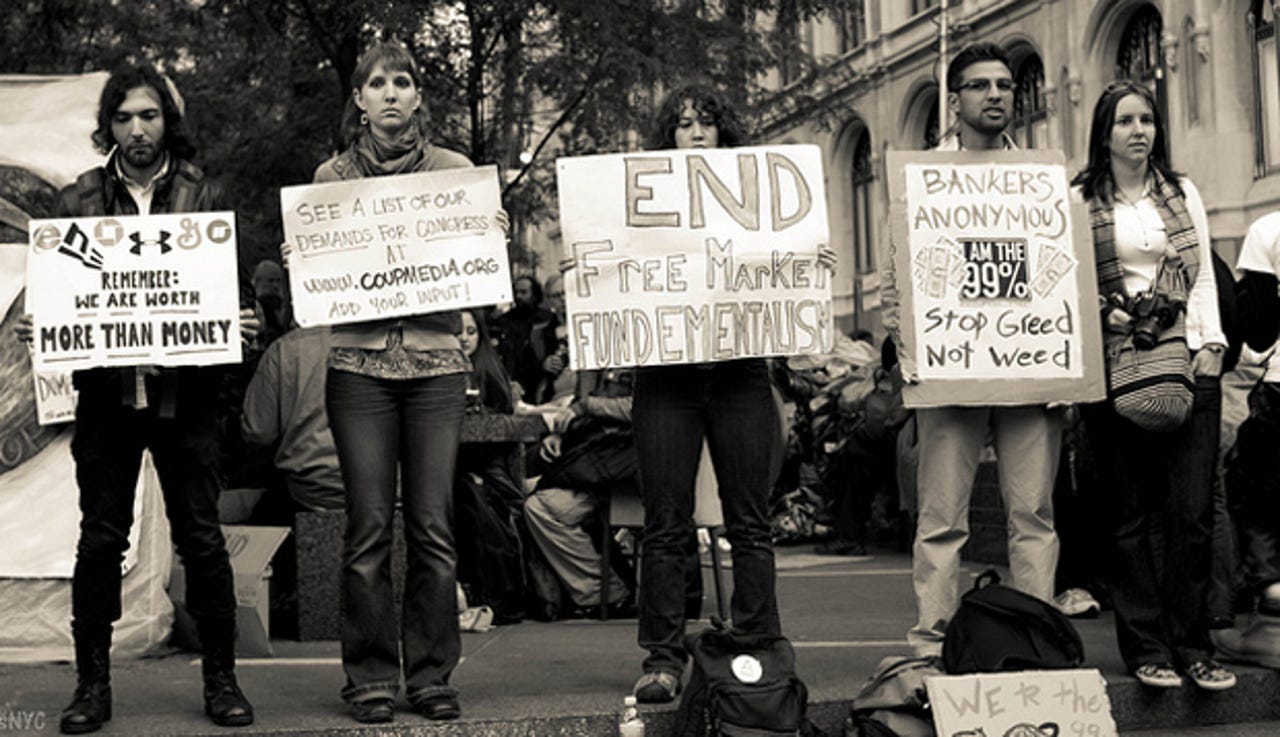Protesters inspire 'Occupy 101' university course

Columbia University is offering a new course next semester based on the 'Occupy' movement.
Run by the Anthropology department, the class is taught by Dr. Hannah Appel, who has previously spent time camped out in Zuccotti Park with Occupy Wall Street protesters. Even though Appel is a participant, the lecturer believes she can teach the course in an objective manner.
See also: Gallery: Thought-provoking protest and 'Occupy' Tweets

(Source: Flickr)
A flyer promoting the class stated: “The Occupy Wall Street demonstrations are catching on across the United states, linking to popular discontent with economic inequality and financial greed and malfeasance around the globe."
Students will be 'going in to the field' for course credit. Participants in the course will be expected to get involved in ongoing "Occupy Wall Street" projects outside the classroom, with 60 Wall Street acting as 'the initial field base'.
The course has been named "Occupy the Field: Global Finance, Inequality, Social Movement." According to the class syllabus, it aims to provide:
“Training in ethnographic research methods alongside a critical exploration of the conjunctural issues in the Occupy movement: Wall Street, finance capital, and inequality; political strategies, property and public space, and the question of anarchy; and genealogies of the contemporary moment in global social movements.”
The course content will be split between seminars and fieldwork. It will also include guest speakers from intellectual and activist communities. Dissenting voices from different perspectives are encouraged.
On her blog, the lecturer defends the movement, arguing: "it is important to push back against the rhetoric of 'disorganization' or 'a movement without a message' coming from left, right and center."
Concerning the risks of fieldwork among protesters, she writes on the syllabus, "I can say with absolute certainty that there is no foreseeable risk in teaching this as a field-base class. On the contrary, the risks of disengaged scholarship seem more profound.”
Looking at the course requirements and book list, many of the names reminded me of my own study as an Anthropology major. Familiar names littered the page, from Malinowski to Clifford. However, it appears to focus mainly on ideology and the use of public space more than the means, which I think is a grave error if one is to understand the movement fully.
Ritualized spaces and the way a city can be used as a space for the 'powerless to become powerful' is all very well, but without studying the modern ways in which the movement spread and was implemented, you miss a key factor.
If social media and networks vanished tomorrow, how would this change the Occupy movement?
Related: